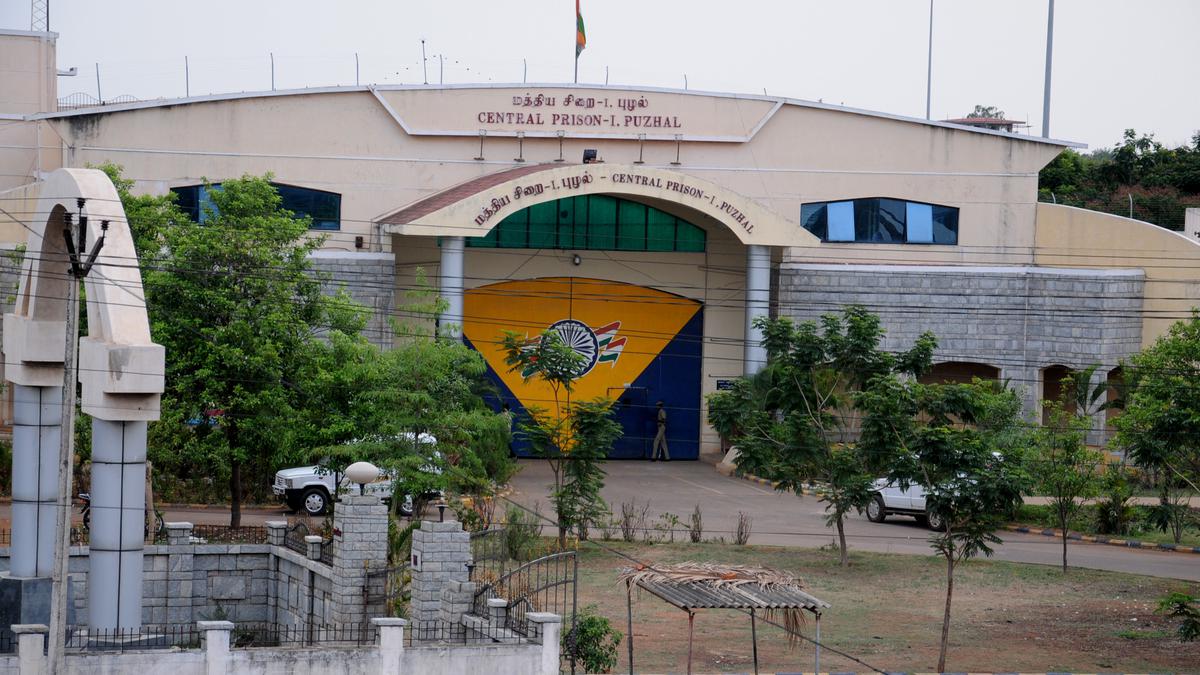
Tamil Nadu to soon bid adieu to prison rules derived from Colonial era laws
The Hindu
Tamil Nadu to replace outdated prison manual with Model Prisons and Correctional Services Act, 2023. MHA assigned task to Bureau of Police Research and Development. New Act recommends use of tech for prison admin, biometrics, CCTV, RFID, video conferencing, cellular jamming, inmate tracking devices. Committee for classification and security assessment of inmates.
Tamil Nadu will soon replace its decades-old prison manual derived from the jail laws of the British era with a new set of rules that will be guided by the Model Prisons and Correctional Services Act, 2023.
The draft of the new prison manual, which is in its final stages of completion, will be sent to the State Government for approval. Amaraesh Pujari, Director-General of Police, Prisons and Correctional Services, is hopeful the process will be completed in a couple of months.
The Tamil Nadu Prison Manual, which governs the administration and management of prisons, is derived mainly from the Prisons Act, 1894, and the Prisoners Act, 1900. In a recent advisory issued to all States, the Ministry of Home Affairs (MHA) said that with the passage of time and the evolution of the ideology of reformation and rehabilitation of prisoners, many of the provisions of these Colonial laws had become outdated and obsolete. It felt that the laws needed to be replaced by a progressive and robust law that would be in tune with contemporary modern day needs and correctional ideology.
After deciding that the outdated laws related to prisons should be reviewed and revised suitably, the MHA assigned the task to the Bureau of Police Research and Development, which in consultation with State prison authorities and correctional experts, prepared the Model Prisons and Correctional Services Act, 2023.
The MHA said the draft had been finalised with the objective of holistically addressing all relevant issues relating to prison administration, including the unauthorised use of mobile phones in jails, scientific and technological interventions in prison management, provision for high security prisons, protecting society from the criminal activities of hardened criminals in prisons, vocational training and skill development of prisoners, reintegration of prisoners into society, and the focus on reformation and rehabilitation of inmates.
According to official sources, the new Act, among other advanced solutions, recommends the use of technology in prison administration. It calls upon States and Union Territories to ensure integration and embedding of appropriate technology for the effective management and superintendence of prisons and for the safety and security of prisons and inmates, which includes biometrics, CCTV system, scanning and detection devices, and radio frequency identification (RFID). It also suggests setting up video conference facilities in every prison for prisoners to attend court hearings/trials and to provide for a seamless biometric access control system for movement of inmates.
A key aspect in the the Model Prisons and Correctional Services Act, 2023 is the use of advanced cellular jamming and detection solutions in jails to prohibit inmates from using mobile phones unauthorisedly. Latest technological interventions were also recommended to detect and prohibit inmates from using mobile phones and other electronic devices.













